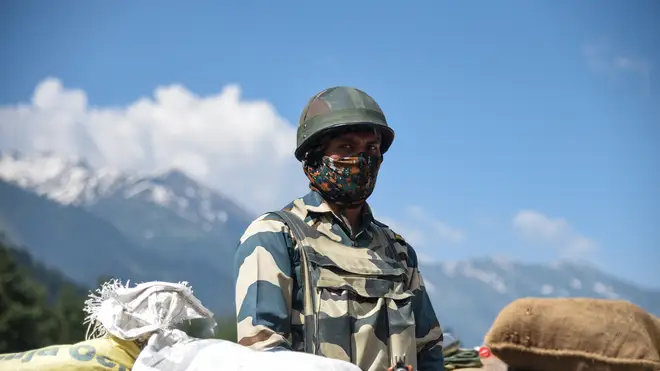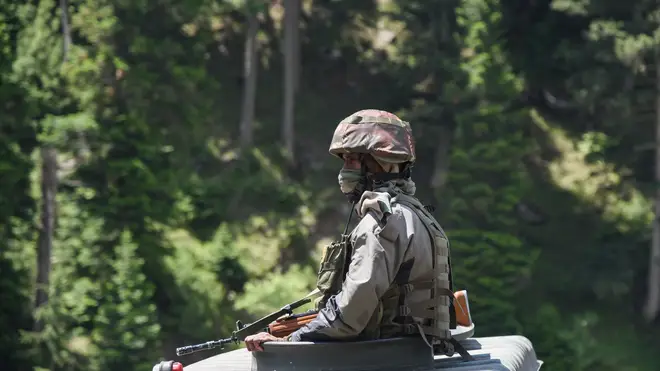
Iain Dale 7pm - 10pm
18 June 2020, 21:43

India has cautioned China against making "exaggerated and untenable claims" on the sovereignty of the Galvan Valley area as both nations tried to end a standoff in the high Himalayan region.
Twenty Indian troops were killed in the clash on Monday night, the deadliest conflict between the sides in 45 years.
China has not disclosed whether its forces suffered any casualties.
Responding to China's claim to the valley, India's external affairs ministry spokesman Anurag Srivastava said both sides have agreed to handle the situation responsibly.
"Making exaggerated and untenable claims is contrary to this understanding," he said in a statement.
Both sides accused each other of instigating the clash between their forces in the valley, part of the disputed Ladakh region along the Himalayan frontier.

Media reports said senior army officers of the two sides met on Wednesday to defuse the situation, but there was no confirmation from either side.
The Indian soldiers, including a colonel, died of severe injuries and exposure in the area's sub-zero temperatures, officials said.
The clash escalated a standoff in the disputed region that began in early May, when Indian officials said Chinese soldiers crossed the boundary at three different points, erecting tents and guard posts and ignoring warnings to leave.
That triggered shouting matches, stone-throwing and fistfights, much of it replayed on television news channels and social media.
Chinese Foreign Minister Wang Yi warned New Delhi not to underestimate Beijing's determination to safeguard what it considers its sovereign territory.
His comments came in a phone call on Wednesday with his Indian counterpart, Subrahmanyam Jaishankar.
Mr Wang said China demanded that India conduct a thorough investigation and "harshly punish" those responsible.
China claims about 35,000 square miles of territory in India's northeast, while India says China occupies 15,000 square miles of its territory in the Aksai Chin Plateau in the Himalayas, a contiguous part of the Ladakh region.
India unilaterally declared Ladakh a federal territory while separating it from disputed Kashmir in August 2019, and China was among the handful of countries to strongly condemn the move, raising it at international forums including the UN Security Council.
Thousands of soldiers on both sides have faced off over a month along a remote stretch of the 2,100 mile Line of Actual Control, the border established following a war between India and China in 1962 that resulted in an uneasy truce.